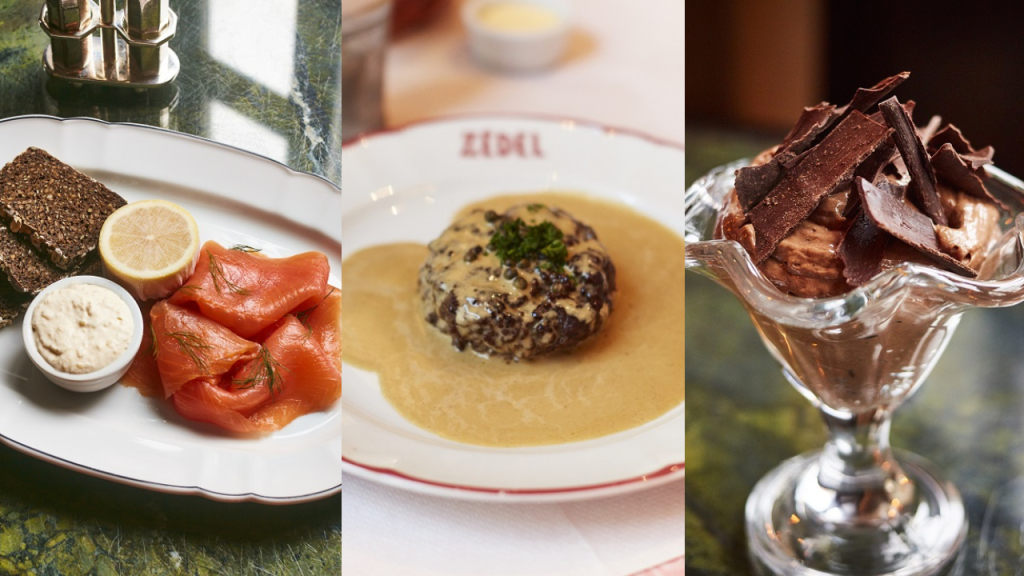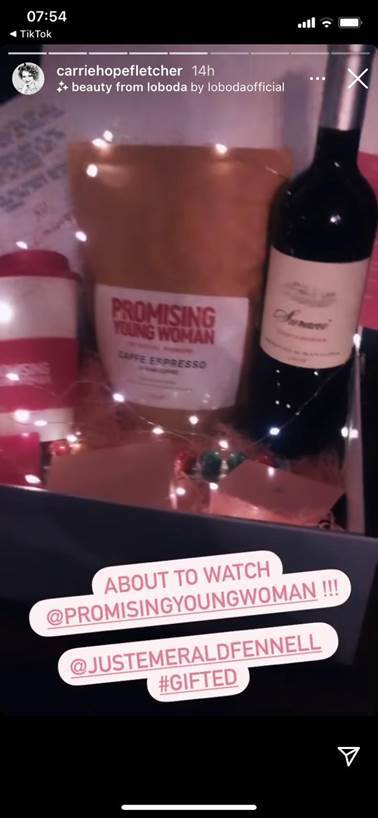For BAFTA voters, Q1 is normally a blur of screenings in plush hotels, drinks receptions, DVD screeners and the occasional posh hamper as distributors try to steal a march on their rivals as we reach crunch time in awards season.
Everything has changed this year, of course. Lockdowns still being in place has scuppered the vast majority of traditional campaigning, and while many of us have had a little more time for those bottomless screeners (nowadays largely online), physical events have been for the most part non-existent.
Because the season has been pushed back in 2021, we are now in the midst of fever pitch on the final stretch of the campaign trail. BAFTA’s third and final round of voting closes today ahead of the dual ceremonies on Saturday and Sunday (April 10 and 11), followed by the Oscars on April 25.
Related Story
Ang Lee To Receive BAFTA Fellowship
Despite the challenges, awards consultants campaigning on behalf of the studios and streamers have been undeterred and are working overtime to find innovative ways to shift their activities online and still carve out influence. From home meal deliveries put together by Michelin-starred London restaurants to celerity-fronted screenings accompanied by artisan cocktails, there has been no shortage of goodies doing the rounds.
For Claire Ingle-Finch, who heads up boutique consultancy firm Finch & Partners, which works with a wide variety of distributors in the awards game, 2021 has represented a chance to experiment. And while there is no replacing the buzz of an in-person event, she says that virtual experiences offer their own benefits.
“Finch & Partners has been bridging luxury brands and entertainment for two decades. When we were faced with the pandemic, we had to think outside of the box about how we would execute these campaigns,” she explains. “There’s no replication for the atmosphere, laughter and engagement of doing something physically, but the online activity this season has definitely had a profound effect. Digital events can actually be further reaching than in-person screenings.”
One recent example of an event organized by Finch & Partners was for Netflix’s Pieces Of A Woman, with star Vanessa Kirby up for the Best Actress BAFTA. The company curated an evening involving Kirby being interviewed by British Vogue Publishing Director Vanessa Kingori. Attendees to the virtual event, which was supported by Gucci (Kirby is a model for the fashion house), were treated to dinner delivered by iconic Michelin-starred Italian The River Café.
Despite the fact that a core purpose of these events is to create online buzz, due to the fleeting nature of popular social media functions such as Instagram’s ‘stories’, much of the response from the night no longer exists. One keen fan of Kirby’s did however screengrab the star’s below image posted during the event:
Last week, another London-based consultancy firm put on a ‘VIP screening’ of Dear Comrades, which is competing on behalf of Russia for BAFTA’s foreign language award. Viewers on the eve were treated to three courses from iconic London eatery The Wolseley: smoked salmon on rye bread followed by steak frites and a mousse au chocolat, washed down with a bespoke Moscow Mule bottled cocktail. The catering company sent Deadline the below pics to illustrate what was delivered:

Focus Features has been in on the act with screenings of Promising Young Woman, and on one eve Richard Curtis hosted a Q&A with Emerald Fennell and Carey Mulligan after the film. The event was timed with Valentine’s Day and featured a party package of chocolate, macaroons and wine. Attendees included the singer Jessie Ware and actress Carrie Hope Fletcher, who posted the below on the TikTok:

Ingle-Finch says that simply putting on virtual screenings and Zoom Q&As has not been enough, “We have been working to make at-home digital screenings that are curated to be unique experiences that have a meaningful impact, we wanted to reach into people’s homes and make them feel like a part of it.”
And let’s not forget that the fundamental point of awards season is to celebrate the films and filmmakers. Being able to curate high-end, luxury experiences at home has been a way to continue that celebration despite the grey cloud hanging over the industry from the pandemic. An added bonus has been supporting those restaurants that have had to shut up shop during the lockdown, Ingle-Finch notes.
But who actually attends these events?
BAFTA has clear rules around the treatment of voters in relation to screenings that prohibit any kind of luxury experience that might influence voting outcomes. For example, food and drink is not permitted “on a scale where it could be seen as an inducement”, attendees cannot receive anything that constitutes a gift, and screenings cannot be advertised as being hosted by a celebrity without a direct link to the film. In addition, “selective ticket distribution”, i.e. to influential voters or specific voting chapters, is a no go.
The answer is that none of these events are officially BAFTA activity. Invites do not explicitly state ‘BAFTA screening’, instead they say something along the lines of ‘special conversation / event / screening’, while some are put on in partnership with other organizations, such as Directors UK. As such, invitees are not strictly BAFTA members and tend to be a mix of influential voters with celebrities and general ‘influencers’ (i.e. people with large social media followings who can whip up strong internet buzz with a post).
“By curating an interesting audience of filmmakers, voters and tastemakers, we were able to create a community around these titles,” says Ingle-Finch. “It’s about raising awareness via word-of-mouth.”
This kind of campaigning also stretches beyond standard categories. Recently, agencies M&C Saatchi Talk, Strike Media and Loop VIP Relations sent out hampers from catering company Wonderland At Home on behalf of BAFTA sponsor EE to promote the fact voting is open for the publicly-elected BAFTA Rising Star award, with recipients including influencers as well as a handful of journalists (this reporter was one). The goodies ended up on the Instagram stories of notable figures including Maya Jama, Ella Eyre and Tanya Burr, who have some 5.5 million followers between them.
Netflix has also been in the goodies game. It will come as no surprise to hear that the streamer has been one of the most active campaigners. It was already a big spender before the pandemic as it looked to establish itself as a fixture at the major awards shows, and last year’s lack of theatrical releasing only strengthened its position. That was reflected in its 34 BAFTA nominations, comfortably the most of all distributors and the second year in a row it has led the pack (up from 23 in 2020).
As a digital company, the streamer has been innovating in online campaigning since before the pandemic, including setting up its own ‘virtual screening room’ ahead of last year’s season. A Netflix employee tells me that the lockdown has, however, redoubled its efforts to make at-home viewing experiences special. The company also managed to squeeze in a few physical events prior to the UK’s second national lockdown in November, including a screening of Mank at Soho House that was accompanied by a photo exhibition.
This year, Netflix Hampers were dispatched from restaurants including smart Italian Bocca di Lupo and Covent Garden’s Petersham Nurseries, which recipients tell me were excellent. However, elsewhere on the hamper front, an unnamed catering company sending grub on behalf of Warner Bros’ Judas And The Black Messiah receives less than stellar reviews. “My request for vegetarian food was ignored and my son described the chicken he ate as ‘horrible’,” one anonymous voter comments.
Amazon, meanwhile, says it did not do any special campaigning this year beyond official BAFTA screenings for its competing titles including One Night in Miami and Sound of Metal.
One event not being pivoted to online this year is the glitzy BAFTA nominees’ cocktail party, which is hosted at Kensington Palace the night before the ceremony and sees a wealth of stars rub shoulders with a select few invitees. For those normally lucky enough to snag a ticket, Saturday’s BBC Two broadcast may not quite have the same allure.
Ingle-Finch also won’t be drawn on the plans for company founder Charles Finch’s glitzy annual pre-BAFTA dinner, hosted with Chanel and a staple of awards season, but teases that there may be a plan in place for a replacement event.
In future awards seasons, she forecasts that online campaigning is going to be a permanent fixture, even once this pandemic is behind us. “I feel that going forward there will be a strong digital component in awards season, it will become an integral part,” she asserts.
But to what extent will all this campaigning have on the outcome at the BAFTAs on Sunday (and Saturday) night? The proof, as they say, will be in the pudding.





